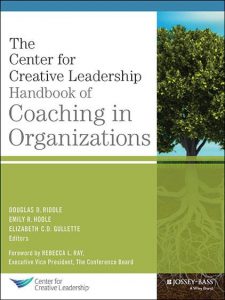If you’re like most HR professionals, you’re familiar with this common workplace scenario: A manager feels overwhelmed and frustrated, particularly when they’re new in role. The skills and talents that led to success as an individual contributor now feel insufficient when that person is elevated into a leadership role. They may be struggling with making the leap from “friend” to “boss,” or seem to be drowning in competing priorities, or work they don’t know how to delegate. First-time managers often face problems like this.
In most cases, your organization will have a number of more seasoned leaders who have dealt with similar challenges and could offer some help and guidance. By using coaching and mentoring programs strategically, you can support your newer managers with access to more experienced leaders, thereby cultivating an organizational culture that prioritizes learning and developing a pipeline of leaders who are resilient, agile, and engaged.
But how do you get started with organizational coaching and mentoring programs?
First, start with an understanding of how they’re similar and how they’re different.
Coaching and Mentoring Programs: What’s the Difference?
Coaching and mentoring are typically related and sometimes overlap. However, while both may be performed by the same leader, coaches and mentors serve different roles, and it’s important to know the difference between coaching and mentoring:
Coaching typically focuses on enhancing current job performance by helping someone resolve a here-and-now issue or blockage for themselves.
HR leaders often prioritize leadership coaching services, such as executive coaching, because coaching helps individual leaders hone self-awareness and provides individualized challenge and support. But coaching doesn’t always have to be provided by a formal coach; coaching can happen for everyone across the organization when people are skilled at holding coaching conversations.
Mentoring, on the other hand, focuses on career path. Rather than helping someone resolve a current challenge, mentoring at work is usually about a mentor helping a “mentee” to become more capable in the near future. Mentors take time to guide and advise their mentees on issues that will likely arise, but may not have yet.
Mentors leverage their expertise to transfer knowledge and help expand networks. They can also leverage their positions to sponsor mentees for developmental experiences, advocate on their behalf for promotions, and survey the environment for threatening forces and opportunities.
Recommendations for HR Leaders Implementing Coaching and Mentoring Programs
Learning to lead is an intensely personal experience, so it’s particularly important for new and emerging leaders to have access to coaches and mentors who can provide them with guidance, support, and context for their their development. Organizational coaching and mentoring programs can be a formal part of an enterprise-wide initiative, or they can be more informal arrangements that are agreed to by both parties.

If you’re designing, initiating, or implementing coaching programs, drive better outcomes by exploring our actionable handbook of coaching in organizations.
Creating a Culture of Coaching and Mentoring
When an organization has a “culture of coaching,” it has a culture that encourages giving feedback and honest conversations across functions and leader levels that amplify collaboration, agreement, and alignment.
Any conversation can become a leadership development opportunity when it’s candid.
Our research with emerging leaders shows that when people are in the early stages of their careers, they often feel it’s risky to speak up. When supervisors and informal coaches throughout the organization demonstrate that they value the thoughts and perspectives of even the youngest members of their teams, they build understanding and glean a more accurate picture of the challenges and opportunities their direct reports face.
Senior leaders and managers can apply the following foundational conversational skills to all of their interactions to coach their people, helping to foster an organizational culture of feedback, coaching, and candor:
Build These 4 Conversational Skills for a Coaching Culture
1. Listen to understand.
When supervisors listen to colleagues, they should be aware of their own agenda. Instead of trying to promote that agenda, listening to understand involves listening with an open mind for facts, feelings, and values.
2. Ask powerful questions.
As 2 people delve into a conversation, they can uncover new insights by making inquiries that stretch the other person’s thinking. Encourage “coaches” to begin their questions with “what” or “how” to tap into feelings and values that encourage reflection.
3. Strike a balance between challenge and support.
Listening to understand doesn’t mean listening to agree. Supervisors can show their support by restating the facts and values they hear. When 2 people have a shared trust built on psychological safety, they are able to ask tough, challenging questions that uncover unexamined assumptions.
4. End your conversation with clear next steps.
Supervisors can establish a sense of accountability by agreeing to next steps. That can be as easy as committing to one small action item that moves the issue forward and demonstrates that the supervisor values the facts and emotions shared by the individual being coached.
Consider What Makes Mentoring Programs Successful
Whereas coaching is intended to address a current challenge, mentoring looks to the future. Therefore, the most successful mentoring programs include careful, strategic planning.
According to our guidebook, Seven Keys to Successful Mentoring, mentoring is an intentional, developmental relationship between a more experienced, knowledgeable person and a less experienced, less knowledgeable person. Often, but not always, this means an older person mentoring a younger one, although reverse mentoring arrangements flip this model around, but work in much the same way.
When creating or improving an organizational mentoring initiative, use these strategies and questions as a guide:
- Be purposeful and strategic. Before you begin pairing mentors and mentees, consider your goals and how these goals fit into your overall development efforts. Think about how your demographics might change in the next 5 years: Who will retire, and who will backfill those roles? How will this mentoring program fit into your overall business plan and human resources strategies?
- Engage leaders. The most effective mentorship programs have buy-in at the executive level. Once you’ve outlined your goals, clearly articulate and communicate those goals. What role can the CEO and senior team play in the process? Who else in the organization will help make the formal mentoring program work?
- Start small. It takes time to recruit and brief the right mentors and mentees, and lessons learned from the beginning of the program can prove beneficial when it’s time to extend it to more people. Be sure your program includes a diverse group of leaders (all genders, people of color, different levels/career stages, etc.) and establishes clear rules about confidentiality to establish trust.
- Train mentors and mentees on skills for developing the relationship and holding mentor conversations. You can’t assume senior people will have the right skills for mentoring. Investing time and resources in training also shows that the company leadership values the program. Along the way, offer support for mentors; this support should be included in the program’s design.
- Measure and share. What is most important for the organization and those participating? Consider the specific needs of the mentoring partners, HR, and business leaders. How can you publicize any early wins in order to build momentum?
For more tips, we invite you to download our complimentary workbook on retaining talent and promoting diversity through mentoring.
Coaching and Mentoring Programs: Especially Key for New Leaders
As noted in our white paper on mentoring first-time managers, when individual contributors are promoted into their first formal leadership positions, many don’t expect the transition to be as difficult as it is. Worse, they often lack the support and development needed to help make that transition successfully. Without support, new managers can suffer — along with their teams and direct reports. By extension, this affects the organization’s retention levels and leadership pipeline, which ultimately can negatively impact the bottom line.
Given the important role that frontline managers play in talent development and succession management, organizations should help ease the transition for new managers by providing them with access to leadership development — especially courses targeted to the needs of new managers — and by exploring formal organizational coaching and mentoring programs to support them.
Ready to Take the Next Step?
Give your new leaders the support they need to reach their full potential and help move your organization forward through a combination of coaching and mentoring programs, coaching and conversational skills training, and proven development courses that work for your culture and needs.









